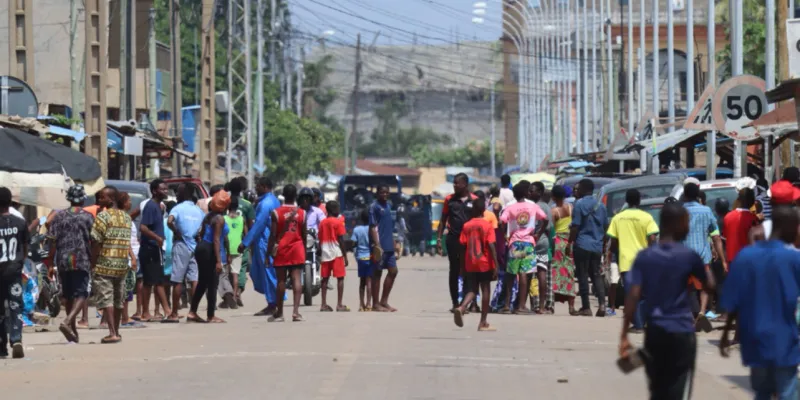Outrage is growing in Togo as youth-led protests intensify following the arrest of popular rapper Aamron and reports of abuses against student activists, raising fresh concerns over political repression in the country.
Aamron, whose real name is Essowè Tchalla, was arrested on May 26 at his home. Known for his critical lyrics targeting the government, the artist disappeared for over a week before reappearing Thursday in a video where he issued a surprising public apology to President Faure Gnassingbé. Aamron claimed he had been transferred to a psychiatric hospital in Zébé due to “severe depression.”
Many observers, including civil society leaders and the rapper’s close associates, questioned the authenticity of the statement and the conditions under which the video was recorded.
On Friday, youth demonstrators filled the streets of Lomé under heavy police presence, protesting the government’s treatment of dissidents and the declining socioeconomic conditions for young people in Togo.
Tensions have continued to rise following the June 6 arrest of dozens of protesters during peaceful demonstrations. Among those detained is Bertin Bandiegou, president of the Synergy of Students and Pupils of Togo. The Association of Victims of Torture in Togo (ASVITTO) alleges that Bandiegou and others have been beaten at the Antigang Brigade in Djidjolé.
ASVITTO has called on national and international institutions—including the National Human Rights Commission (CNDH) and the UN Development Programme—to intervene, accusing them of remaining silent amid growing abuses.
Togo has been ruled by President Faure Gnassingbé since 2005, following the 38-year reign of his father. A recent constitutional shift has further strengthened Gnassingbé’s grip on power by transitioning the country into a parliamentary system, with him at its head.
Togo’s youth protest as power tightens under Gnassingbé’s rule



